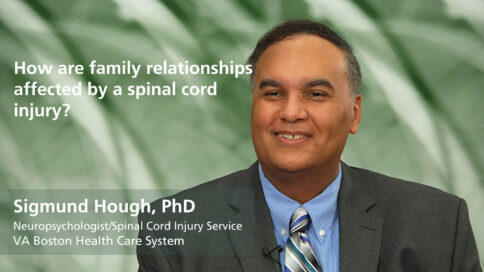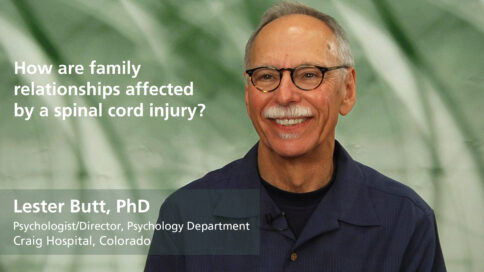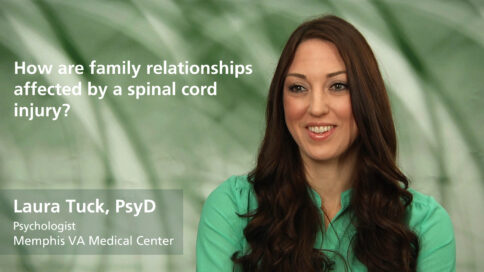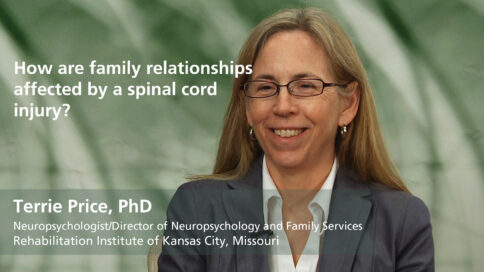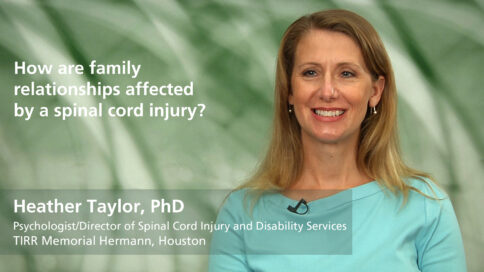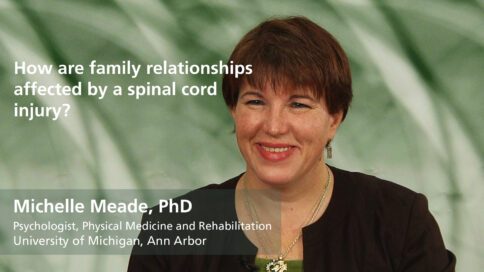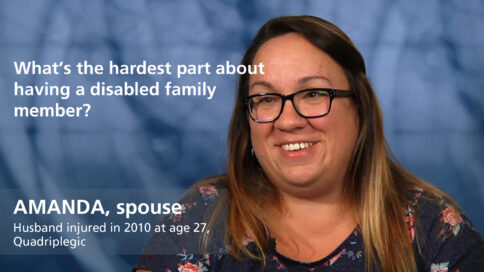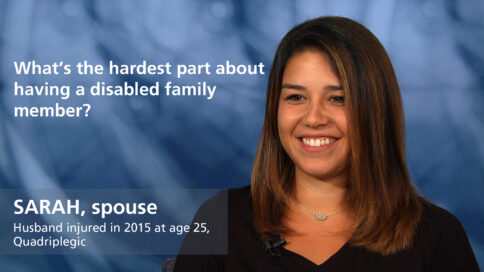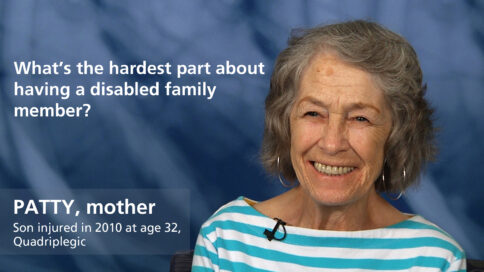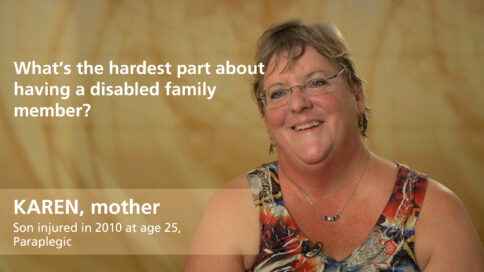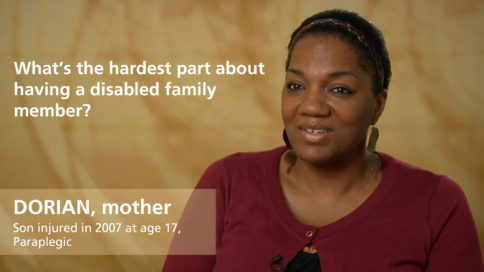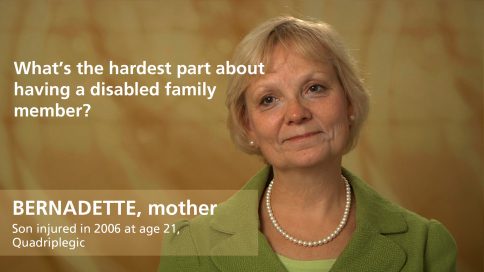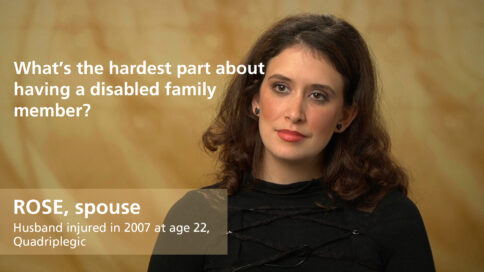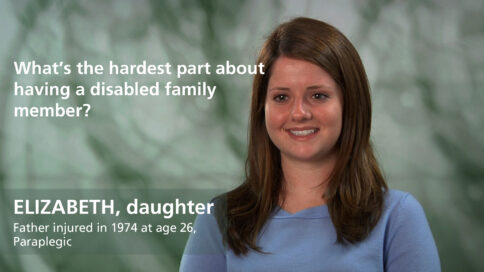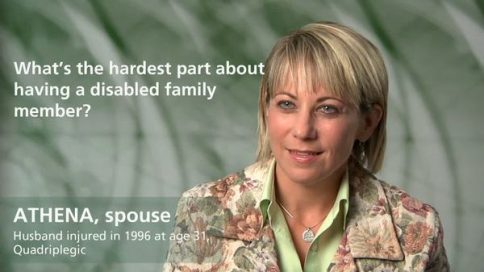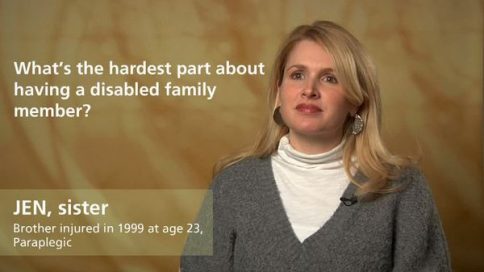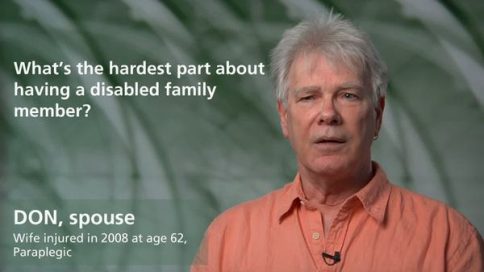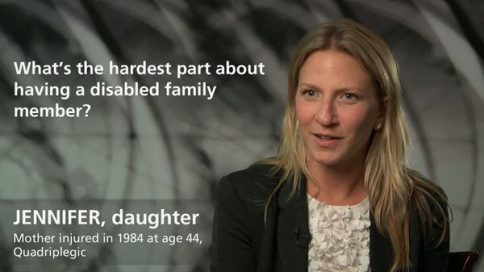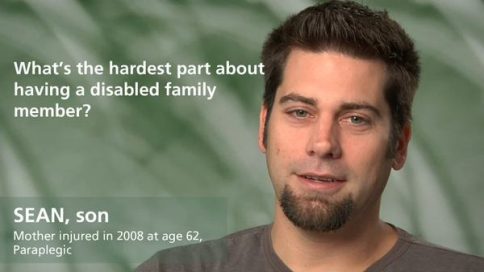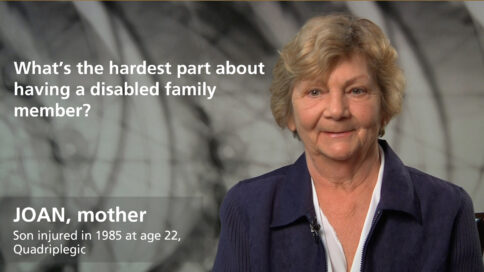How about feelings of resentment and frustration among non-injured family members? - Nancy Rosenberg, PsyD
|
|
How about feelings of resentment and frustration among non-injured family members? |
|
Nancy Rosenberg, PsyDPsychology Clinical Specialist and Director, Peer Mentor Programs, Magee Rehabilitation Hospital, Philadelphia |
||
| Read Bio | More Videos by Nancy Rosenberg | |
|
Share |
||
Transcript
Family members often do have resentment or anger toward the loved one who has been hurt, whether it’s rational or not. So in other words, if the injury had nothing to do with the behavior of the loved one, they still might feel angry and resentful. Sort of like when a family member dies—you know that person wasn’t signing up to die, it just happened in most cases, and still you feel kind of angry because you were left behind. And I do think it’s a similar situation with spinal cord injuries. They’re feeling the unconscious feeling—“How can you do this to us?” “This is really going to be so hard for all of us.” “Do you think you’re the only one who’s suffering, when were all suffering?” In fact, family members often struggle more than the patient or person who has been injured, because the person who is injured, is focused on themselves. It is a full time job, really, going to rehab and outpatient therapy. Yet the family is left with all the other pieces that they have to juggle, and they have to think about.
Show Less|
|
||
add
How about feelings of resentment and frustration among non-injured family members? |
||
Nancy Rosenberg, PsyDPsychology Clinical Specialist and Director, Peer Mentor Programs, Magee Rehabilitation Hospital, Philadelphia |
More Videos by Nancy Rosenberg | |
| Transcriptadd | share | |
Family members often do have resentment or anger toward the loved one who has been hurt, whether it’s rational or not. So in other words, if the injury had nothing to do with the behavior of the loved one, they still might feel angry and resentful. Sort of like when a family member dies—you know that person wasn’t signing up to die, it just happened in most cases, and still you feel kind of angry because you were left behind. And I do think it’s a similar situation with spinal cord injuries. They’re feeling the unconscious feeling—“How can you do this to us?” “This is really going to be so hard for all of us.” “Do you think you’re the only one who’s suffering, when were all suffering?” In fact, family members often struggle more than the patient or person who has been injured, because the person who is injured, is focused on themselves. It is a full time job, really, going to rehab and outpatient therapy. Yet the family is left with all the other pieces that they have to juggle, and they have to think about.
